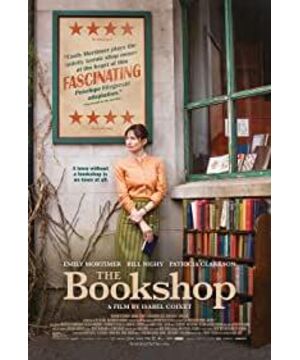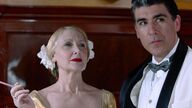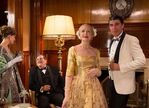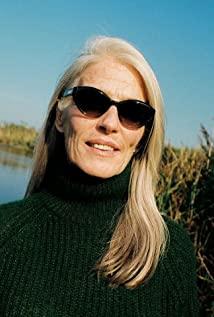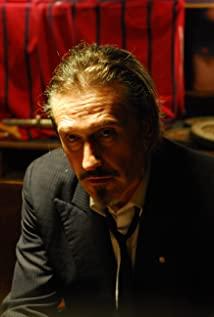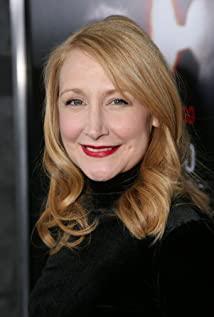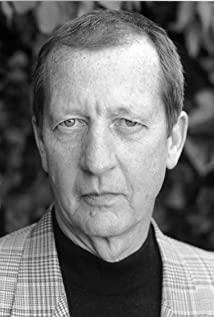In fact, since Jane Austen, we have been reminded of how many trivial evils hide in those seemingly paradise-like villages.
In the late 1950s, in the remote Suffolk seaside town of Hudburgh, England, people were still used to calling each other by their surnames, "Mr. Browndish" and "Mrs. Gamma". They are polite and considerate to each other, the sea breeze is warm, and the years are quiet.
Middle-aged widow Flarrence Green (needless to say, a victim of World War II who has been a widow for more than ten years) came here and planned to open a bookstore. She borrowed money from the bank and bought the "Old House". "one's house. The old house was shabby, damp, moldy, crumbling, and had been vacant for years.
In the quiet and distant narrative, this tiny East Anglian seaside town emerges for what it really was. It is not that fairy tale village that can happily ever after, but a lair full of malice, gossip and backbiting in reality.
This is the background of last year's film "The Bookstore," adapted by Spanish director Isabel Cosette based on Penelope Fitzgerald's novel of the same name.
The people in the village, most of them actually had no interest in reading, but they showed a certain joy. Only Violet Gamma, a local celebrity and aristocrat, casually expressed her opposition. She asked Florence to socialize at home, and she asked casually, maybe that house would be better for an art center? Of course she's not asking, she's giving an ultimatum, you can either go away by yourself, and don't force me to chase you.
The war started like this, and allies on both sides soon became available.
On Flarence's side, there is the little thornhead she hired to help in the store, the rash but honest elementary school girl Christine, and the eccentric, reclusive bookworm Mr. Browndish. Brandish has a famous quirk. He loves literature and reads novels, but hates people, including those who write novels. A series of montages appeared on the screen, and the paper skins with portraits of Wilde, Austin, and Joyce were continuously curled, wilted, and turned to ashes in the fire. So it's no surprise that he became a fan of Ray Bradbury's Fahrenheit 451. However, the story of "Fahrenheit 451" was constantly mentioned shortly after the beginning, which cast an ominous layer on the film's telling. When he first heard about a bookstore opening, he just shrugged in disapproval. "They won't understand," he continued, looking at the list of titles that included "Fahrenheit 451" and Nabokov's "Lolita," "but it's always good to try."
Browndish and Florence have the greatest thing in common. They both respect, and can even say, faith and knowledge, and they both hope to bring even the slightest enlightenment to the town of Hudburgh.
Browndish realized that Hudberg needed her, so he came out of his many years of solitude. In addition to questioning Mrs. Gamma face to face as a local squire, he also stepped into a middle-aged love affair. Only on the verge of budding love, a stumble will stop abruptly. This romance is the grace, restraint and beauty that have been missing on the screen for a long time. That clumsy first meeting, two people who have lost their lovers for many years, tried their best to prove that after years of being alone, every action caused boundless embarrassment, Blondie sighed, and the audience had to let him sigh tone. "You've made me believe again a thing I've long forgotten," he said to Florence, maybe he was talking about love. They met on both sides.
On Mrs. Gamma's side, she herself was clearly as uninterested in the art she represented as she was in books and literature. But it doesn't matter: behind the two women's fight over a crumbling, damp old house is a fight between conservative ghosts and enlightened spirits roaming the town. Through those slightly humorous and sinister shots, the bank manager is eccentric and few words, and every sentence seems to be saying a secret language, just like a character from a Kafka book, the oblique angle and the angle when he meets Florence. The dim light makes it weird and terrifying. Most of the villagers had the same terrifying and suspicious halo around them. The town's talkative old soldiers, Florence's lawyers, and glib BBC gangsters turned out to be snobbish snobbery.
A book in itself can be both comforting and liberating for the person who reads it. And walking into a bookstore is sometimes like taking a good dose of medicine. Florence lost the war, a world where books and book lovers have no place. Maybe also think of it as an anti-American dream story, you can keep trying, keep trying, and in the end you fail - that's how each of us lives. Only occasionally win.
We also see how sinister and self-righteous it is in a world without books, the town of Hudburgh in the movies, where gossip (aka fake news) is flying around, and how books and reading can be devalued. In addition to Fahrenheit 451, there is another book that is repeatedly mentioned in the film, Nabokov's Lolita. In those days, selling such a book expressing the physical relationship between a middle-aged man and a girl to the public in a remote town was bold and a bit cool. Looking at it today, it is hard to say whether such a book can be published. However, just because a book is morally ambiguous does not deny it is a good book. The challenge of literature to established values is, in fact, the most important and valuable contribution it provides to humanity. There are subtitles at the end of the film, which is dedicated to John Berger, who died in early 2017, which makes people's eyes warm. All the glory is books and literature.
View more about The Bookshop reviews


